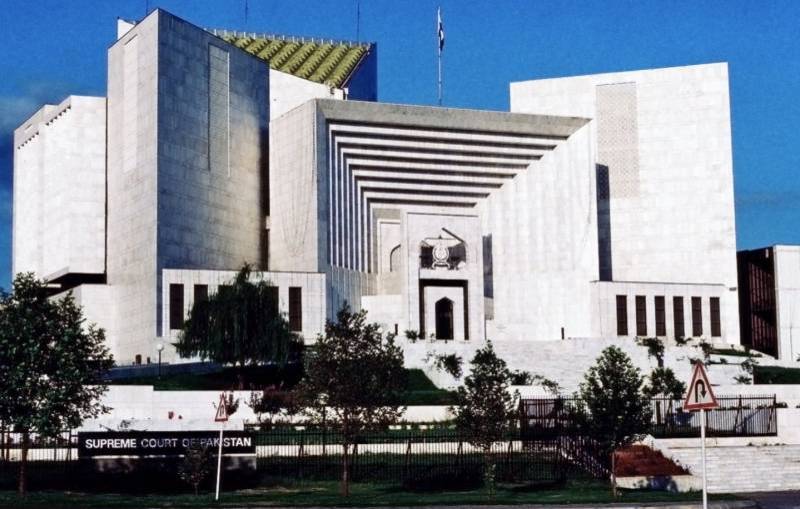Islamabad (Web Desk): The Supreme Court (SC) on Tuesday reserved judgment on the presidential reference, seeking interpretation of Article 63 (A) of the Constitution.
According to details, the court will announce its verdict this evening.
A five-member bench of the apex court headed by Chief Justice of Pakistan (CJP) Umar Ata Bandial, and comprising Justice Ijaz-ul-Ahsan, Justice Mazhar Alam Miankhel, Justice Muneeb Akhtar and Justice Jamal Khan Mandokhel, concluded hearing the case.
During today's hearing, Pakistan Muslim League-Nawaz (PML-N) lawyer Makhdoom Ali Khan submitted his detailed response to the court while newly appointed Attorney General of Pakistan Ashtar Ausaf (AGP) completed his arguments.
The lawyer maintained that the circumstances have changed now and therefore, he should be allowed more time to take new instructions from the client.
In his arguments, Attorney General of Pakistan (AGP) Ausaf said that the court is looking into the presidential reference as an advisory authority and he would assist the court in line with the reference and legal questions.
He maintained that article 63(A) is a complete code.
The AGP in his arguments stated, "It has to be seen that if anything else needs to be added to the Article or not, and whether the dissidents' vote can be counted."
Former Pakistan Tehreek-e-Insaf (PTI-led) government had moved the SC for clarity on Article 63(A) as several PTI lawmakers announced to vote on the no-confidence motion against then prime minister Imran Khan, in a violation of the party policy.
In the reference, the apex court’s opinion had been sought on two interpretations of Article 63(A) and which one should be adopted and implemented to achieve the constitutional objective of curbing party defections.
The reference stated if the constitutional disapproval and prohibition against defection was effectively enforced with deterrence for the future as well, many such members would stand disqualified for life under Article 62(1)(f).


